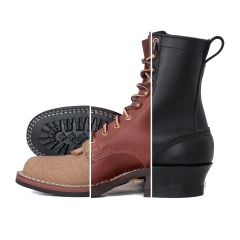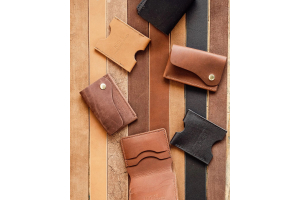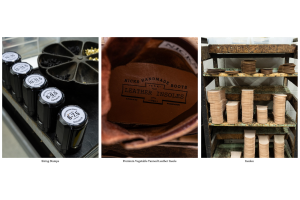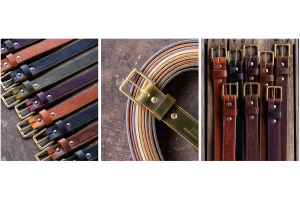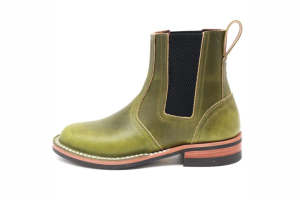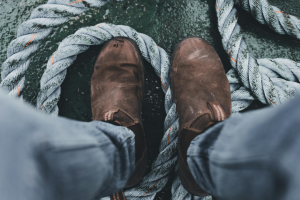Do Leather Work Boots Make Good Outdoor Or Hunting Boots?
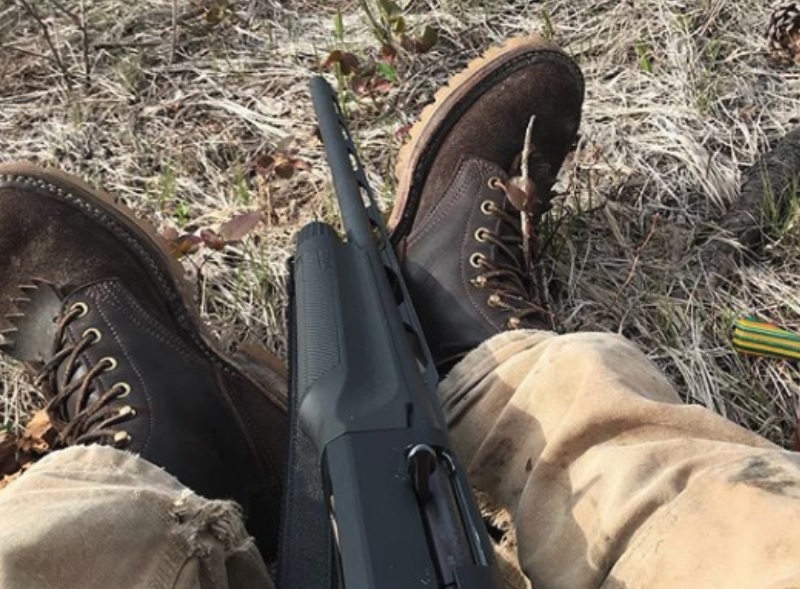
A good sturdy pair of boots is great for general wear, on and off the job site. However, are leather work boots good for general outdoor use as well, such as being used as hunting boots or hiking boots? A good pair of boots, after all, can handle a lot more than typical footwear in terms of overall wear and tear.
The short answer is that they'll work...but the truth is that they are not the best tool for the task. Custom work boots, especially those of a wildland firefighting boot or logger boot design, are designed and constructed to work well in the outdoors, but modern hunting boots have design elements that make them better-suited to those applications.
How so? Well, let's dig into that a bit more.
What Features Leather Work Boots Have
Leatherwork boots, including custom work boots, often have features that are necessary for that application. Boots are tools, and you want the right tool for the task. Custom work boots have reinforced shanks, many have heavy raised and rounded heel profiles, and heavy lug soles.
Good quality custom work boots typically made of quality leather except for the sole and the hardware. Many custom work boots are also offered with a steel toe or composite toe, as these can be necessary on the job site.
Now, why are these features common with leather work boots? Because those are good attributes for work boots to have.
Work boots need to have a great deal of support. Many work boots need to be rigid enough to stand up to abuse, day in and day out, on concrete and on other hard surfaces. This is why reinforced shanks are common features of work boots. Raised heels help ensure stability, help create a solid platform for lifting and also aid in ascending and descending ladders with a secure foothold.
Heavy leather ensures that the boot is of solid construction but also is pliable enough for comfort.
Think of a pair of solid leather work boots like a pickup truck with comfortable seats. You can be comfortable inside the cabin, but it isn't as good to drive as - say - a Cadillac. Could you take a pickup on a road trip? Sure! But would it be as good to ride in as a Caddy if you were going from, say, Spokane to Boise? Probably not. However, would you haul a few yards of gravel and tools in a Cadillac? Of course, you wouldn't - it's designed for cruising, not for heavy work.
And that's really the thing about using leather work boots for hiking, hunting, and other outdoor pursuits. They'll work because they're made tough...but there are precise tools for the task.
Hiking And Hunting Boots vs Work Boots
What, though, do you want from hiking or hunting boots that you might not get from a pair of work boots?
For starters, many hunting boots need to be waterproof, as deer season does not take place during the more pleasant parts of the year. Insulation is also a good idea in the more northerly states. Ask a hunter and they'll tell you that 200 to 600 grams of Thinsulate in a boot is downright necessary when sitting in a duck blind or deer stand in November when your boots are wet and the temperature is below freezing.
The leather isn't necessarily the best material in that instance. Rubber or other manmade materials, being nonporous and therefore waterproof, actually make for better lower material than leather does. That's why you'll see high-end hunting boots and outdoor boots with synthetic lowers. The issue of water getting in through the welt isn't an issue if a boot lacks that kind of welting.
Additionally, flexibility in a hiking boot or hunting boot is a must, far more so than it is on a job site. The foot flexes a bit more dramatically when going up and down ridge after ridge, or ascending technical trails in the backcountry whilst hiking.
Bob and other sole designs can shed moisture and other material, allowing for the utmost in traction in softer terrain than heavy lug soles. Raised heels give one incredible stability, but not necessarily the necessary flexibility required in the rough country.
Another aspect of importance is weight itself. A pair of boots that weigh 3 pounds each is pretty heavy footwear. While they'll take the pounding that backcountry hiking can dish out or backcountry hunting, a pair of boots that saves a few ounces will be more welcome.
Every ounce that can be saved is important if one is living out of a backpack.
When hiking in warm weather, breathability is also a good attribute, which heavy leather is not the best at. Partial mesh uppers are popular features on hiking boots and warm-weather hunting boots can let the foot breath a little more, keeping one's feet from overheating.
These are just some of the features that are found on purpose-made hiking boots and hunting boots, many of which are not always the most common on custom leather work boots. Why is that?
Because each is tools made for a specific purpose.
Invest In Custom Work Boots For Work
If you're looking for a tough pair of boots, there are plenty out there for any purpose. That said, investing in a pair of custom leather work boots are a great idea if you need them for work. If you work on your feet all day, doing heavy labor then they are a great investment.
If you work on concrete, a heavy pair of work boots are absolutely essential to preserve your feet, lower back, and knees. If you work around heavy materials or equipment, a pair of steel toe boots is necessary...in fact, they may be legally required.
If you work on ladders, then you need a pair of work boots made to go up and down them all day long. A pair of heavy boots is necessary if you do hard work outdoors, on uneven ground.
The kind of flexibility needed in footwear for hiking or hunting is not as much a consideration. The needs of materials are also different since many job sites don't subject workers to cold, wet conditions for hours upon end...most of the time.
In short, you want to invest in custom work boots as a tool for your work. You want to invest in a good pair of hiking boots or hunting boots for those purposes. While there are some boots out there that have features of both in common, the reality is that jacks of all trades are typically masters of none.
A pair of quality custom boots is a tool. Make sure you get the tool that's right for the task.

